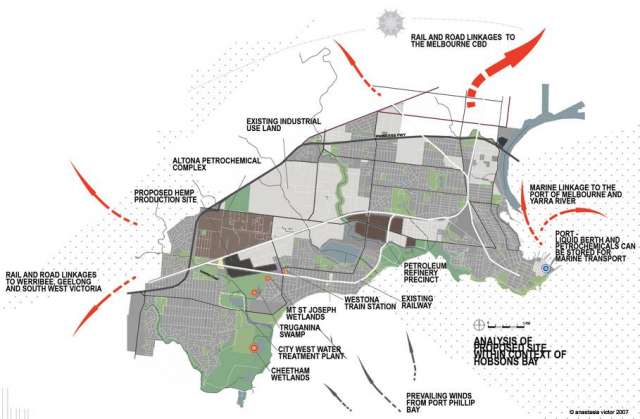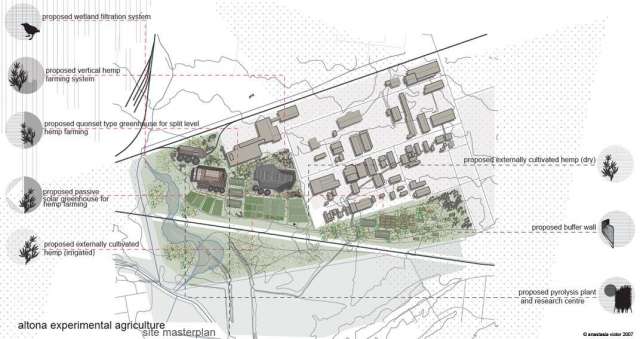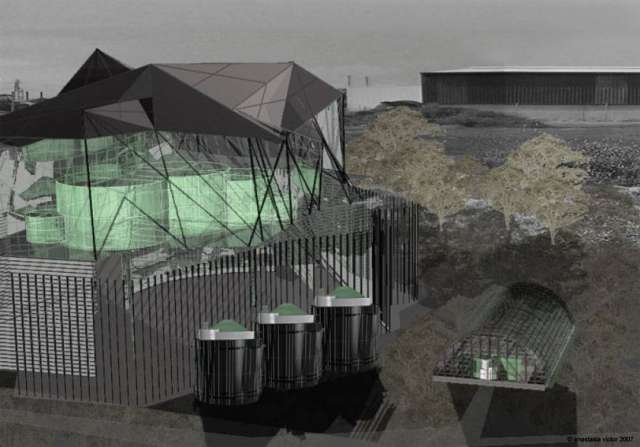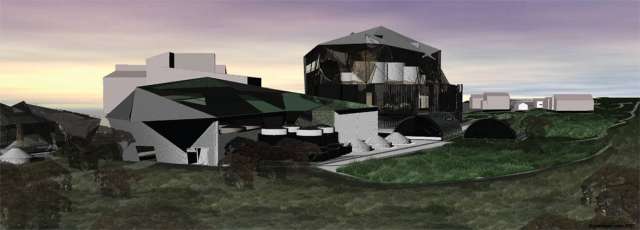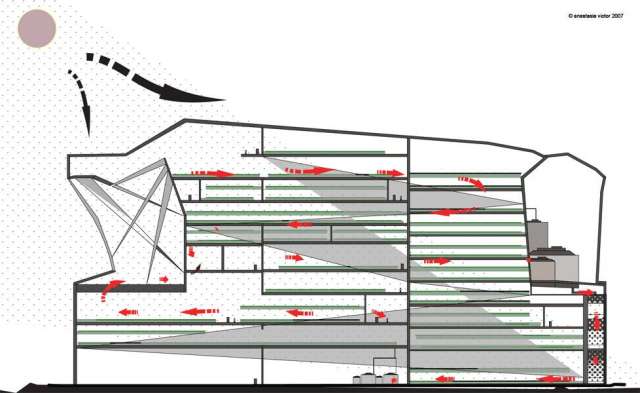Experimental Agriculture
An ongoing experiment in architecture and agriculture to improve sustainability.
The Altona Experimental Agriculture Farm explores various agricultural production methods of hemp for biofuels. Formerly an industrial site, it developed into an experimental farm that includes the processing of its own run-off. The farm is experimental in various ways. It tests methods of hemp production and processing. Waste processing is experimental, as are the configurations of the greenhouse typologies. The transition from industrial site to production site retains the existing infrastructure which includes the railway lines and vehicle links. Localised infrastructure and self-sustainability are part of the design, with features such as the pyrolysis plant for producing electricity from waste plant matter, an on-site wetland treatment system and passive and active solar elements.
The site has sensitive buffer zones around the edges, and the energy inputs, outputs and yield are closely managed to minimise ecological impact. The production of the biofuels is compressed into a dense space with some of the greenhouses built ten storeys high, which alleviates the current pressures choosing between biofuel production or food for land-use. This project’s sustainable transition from heavy industrial to biofuel production highlights the value of experimentation and research as ongoing practice.
Designer
Anastasia Victor
Domain
Landscape Architecture
Studio
Studio Leaders
Dr Sidh Sintusingha
